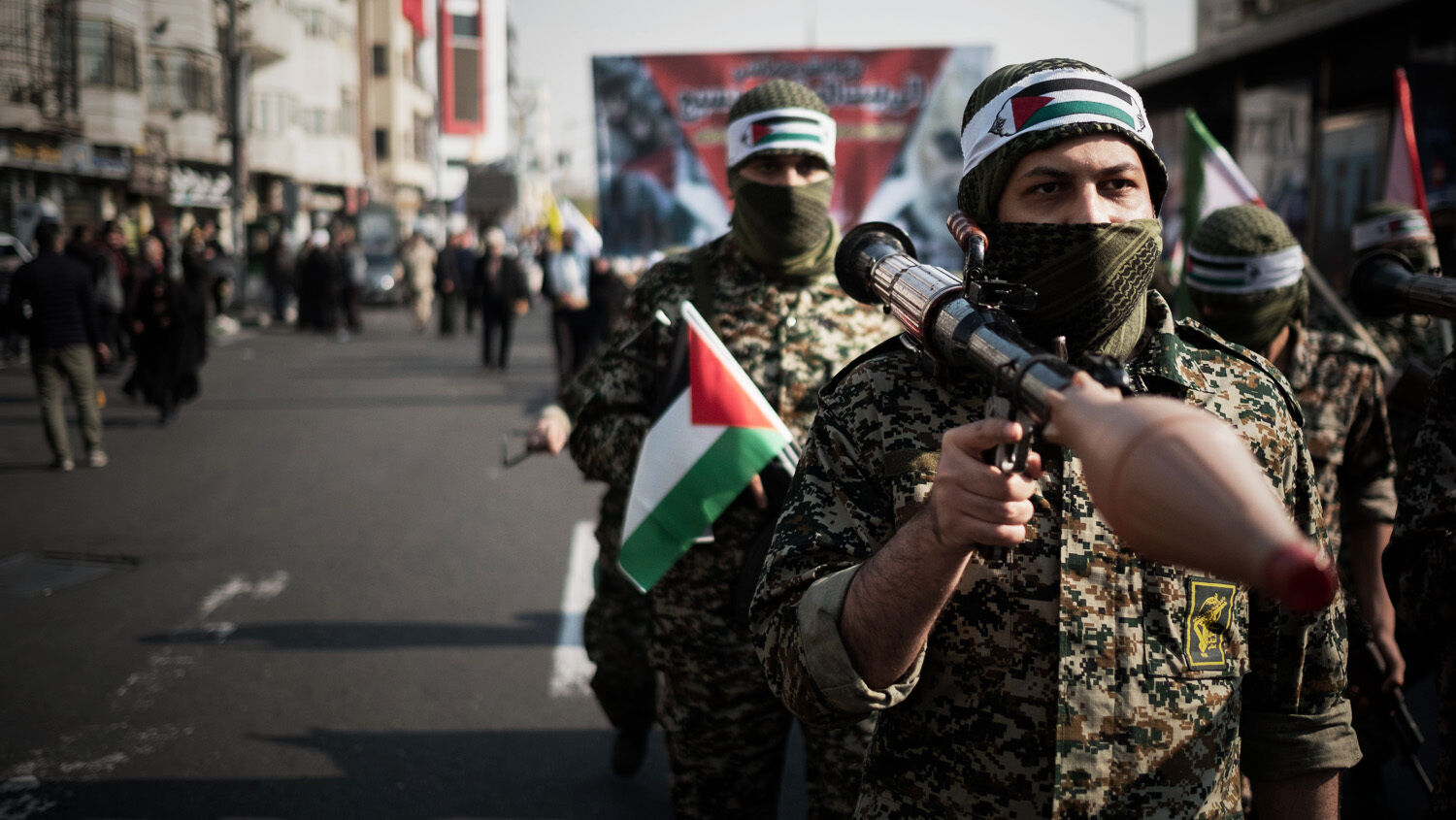
Iran Collaborates With Al Qaeda and the Taliban Against Israelis
Following terror groups sometimes feels like watching a game of scorpions in a jar. In this scenario, the scorpions are jihadist groups while the West is the human handler. The scorpions hate the handler and would sting him if given the chance. But the scorpions hate each other almost as much and, in their closed environment, cannot help but duke it out. While each group sees the West—America, Israel and company—as the ultimate enemy to slaughter, they’re also busy fighting each other.
Such reasoning may make jihadism look less scary. A united enemy is more dangerous than a fractured one, after all. But this view is incorrect. While there is often lethal competition between terror groups, their common hatred of the West is enough to unite them. Recent media reports reveal the key unifier among terrorist entities: Iran.
Intelli Times, an Israeli intelligence blog, reported on December 24 that Iran’s Islamic Revolutionary Guard Corps (irgc) is recruiting terrorists from Afghanistan for suicide attacks against Israeli targets worldwide.
Iran International elaborated on this in a December 27 report, which stated that the Quds Force, the irgc’s special forces, is cooperating with the Taliban and al Qaeda. The report highlighted the attempted assassination of Itsik Moshe, an Israeli citizen living in Tbilisi, Georgia, on November 22. Iran International claimed the Quds Force recruited four Afghans affiliated with al Qaeda. It’s unlikely the Quds Force would have bothered recruiting Afghans without consent and support from Afghanistan’s Taliban regime.
“It seems that the Islamic Republic of Iran, al Qaeda and [the] Taliban have put aside their religious differences for a broader war against Israel, using Afghan suicide bombers,” Iran International’s Mojtaba Pourmohsen stated.
Iran’s regime follows Shia Islam. Al Qaeda and the Taliban are both Sunni groups. Historically, the two strands of Islam were at each other’s throats. Because of this, some see Iran and Sunni groups as irreconcilable.
But the latest reports are not the only instances of Iran working with these Sunni groups.
When the Taliban was rapidly taking over Afghanistan in the midst of the United States’s 2021 withdrawal, many analysts assumed this was bad news for Iran. Headlines like the following appeared:
- “Iran Cheers U.S. Withdrawal From Afghanistan—but Fears What Could Follow” (Washington Post)
- “Taliban’s Return in Afghanistan Poses a Balancing Act for Iran” (Wall Street Journal)
- “Iran Maintains Cautious Calm as Taliban Rises” (Al-Monitor)
Such stories imply Iran and the Taliban are not on the same team. This obscures the direct role Iran played in placing the Taliban in power. This includes financial sponsorship, training Taliban soldiers on Iranian soil, and Iranian soldiers fighting on behalf of the Taliban in Afghanistan.
What about al Qaeda? Immediately after the U.S. invasion of Afghanistan in 2001, Iran began harboring al Qaeda operatives fleeing from the chaos. Last year, the U.S. confirmed Iran is harboring al Qaeda’s current leader, Saif al-Adel, and has been doing so for years.
That’s not to say Iran’s relations with these groups is always rosy. Last year, Iran and the Taliban almost went to war with each other. But when push comes to shove, the West will always be radical Islam’s main target, a unifying factor among the various jihadi factions. And Iran, the only terrorist entity that can govern itself as a world power, is their natural leader.
Since the 1990s, the Philadelphia Trumpet has watched for the rise of a Middle Eastern power bloc called “the king of the south” in the Bible. Daniel 11:40-43 state:
And at the time of the end shall the king of the south push at him: and the king of the north shall come against him like a whirlwind, with chariots, and with horsemen, and with many ships; and he shall enter into the countries, and shall overflow and pass over. …
He shall stretch forth his hand also upon the countries: and the land of Egypt shall not escape.
But he shall have power over the treasures of gold and of silver, and over all the precious things of Egypt: and the Libyans and the Ethiopians shall be at his steps.
Biblical and secular history shows the king of the north to be a united European power. The other king is south of Europe. It has a pushy, provocative foreign policy. It commands a large proxy empire throughout the Middle East and North Africa. Trumpet editor in chief Gerald Flurry has constantly stated that Iran will fulfill this role. But what exactly is Iran king of?
“Since the early 1990s,” Mr. Flurry wrote in The King of the South, “we have believed and taught that Iran would lead the radical Islamist world and be the king of the south. Today in the Middle East, Iran is ‘king’!”
Having al Qaeda and the Taliban in its ranks proves how much Iran has become the king of radical Islam. It won’t be long before somebody decides to counter this scorpion’s ascendancy—and squashes it underfoot.
To learn more, request a free copy of The King of the South.
